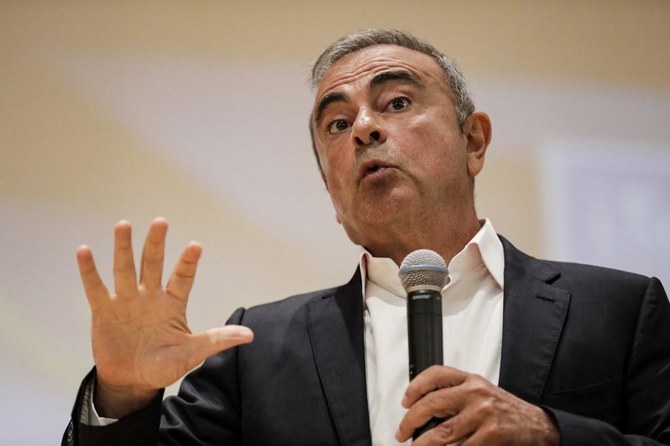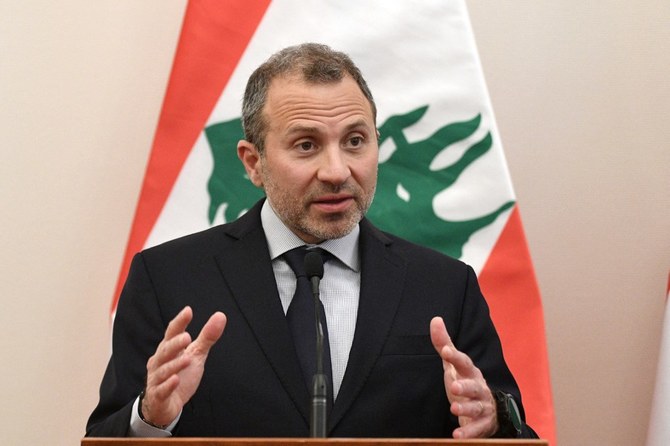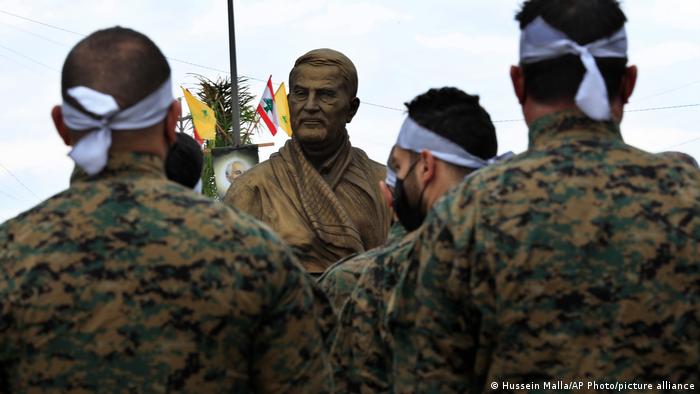By Saundra Latham, Editor at LinkedIn News — Soon, you may be able to catch your favorite HBO show on … Netflix? …

BEIRUT - By Bassem Mroue -- (AP) — Auto tycoon Carlos Ghosn has filed a $1 billion lawsuit against Nissan and about a dozen individuals in Beirut over his imprisonment in Japan and what he says is misinformation spread against him, Lebanese officials said Tuesday. According to the officials, Ghosn’s lawsuit accuses Nissan and the individuals of defamation and of “fabricating charges” against him, which eventually put him behind bars in Japan. The lawsuit was filed last month, the judicial officials said, speaking on condition of anonymity to discuss the case. The officials did not identify the individuals that Ghosn is accusing. Ghosn was arrested in Japan in November 2018 on charges of breach of trust, misusing company assets for personal gains and violating securities laws by not fully disclosing his compensation. According to Judge Sabbouh Suleiman, who is at the Beirut’s prosecutor’s office, a hearing date in the case was set for September.
The judicial officials who spoke to The Associated Press said that Nissan and the accused individuals are expected to send representatives to Beirut or name a Lebanese lawyer to represent them. The 69-year-old Ghosn, who for two decades was the head of Nissan and Renault, has repeatedly said he is innocent. In December 2019, he jumped bail in Japan in a daring escape by hiding in a box spirited aboard a private jet out of the country. Prosecutors in Japan have charged three Americans with helping Ghosn escape the country. He now lives in Lebanon, which has no extradition treaty with Japan and does not extradite its citizens. Renault and Nissan have both been distancing themselves from the Ghosn scandal. Ghosn has citizenship in Lebanon, France and Brazil.

By Najia Houssari - ARABNEWS.COM -- BEIRUT: The Lebanese parliament on Monday passed an appropriation bill to cover public sector employees’ salaries and transportation allowances. The decision came even though the caretaker government led by Prime Minister Najib Mikati has not yet approved the 2023 budget or adjusted the figures in the 2022 budget. In a controversial session, the 128-seat parliament also passed a proposal for a law that provides financial incentives and transportation allowances to professors at the Lebanese University during the current academic year. The session was boycotted by 29 MPs representing opposition Christian parties and reformist MPs. The session achieved a quorum with the presence of MPs from the Free Patriotic Movement bloc, led by MP Gebran Bassil. This parliamentary bloc considered its stance to be in line “with the principle it adopted, which limits its participation in legislating essential matters related to the higher interests of the state.”
The boycotting MPs emphasized in a joint statement that Monday’s meeting came after Hezbollah and Amal Movement team disrupted the 12th voting session last Wednesday. According to the constitution, parliament cannot legislate if the position of president remains vacant. It is exclusively an electoral body until the president is elected. Therefore, the MPs said the session is unconstitutional, and additional appropriations cannot be approved in the absence of the 2023 budget, which has not been passed by the caretaker government lacking parliamentary confidence. The boycotting MPs from the Lebanese Forces, Kataeb and Tajaddod blocs said that “the arbitrary and unfunded increases lead to inflation, which previously resulted in cutting the purchasing power of these salaries in half.” This approach “lacks seriousness, vision, and a comprehensive plan, and it does not address the problems,” they added. Speaker Nabih Berri responded to the boycotting MPs at the opening of the session. He said: “Some parties believe that the government should not meet, and the parliament should not convene or legislate. If we want to proceed with what they want, then we will never work.” Mikati said during the session that “the 2023 budget is ready, and the Finance Ministry will send the final draft of the budget to the government before the end of June to begin its discussion, and we will call for consecutive government sessions to approve it.”

this may not necessarily represents khazen.org opinion it just represents an opinion from Economics Professor Nadim Shehadi -- \
by NADIM SHEHADI -- arabnews.com -- There is an “end of time” mood in Lebanon. Beirut feels like a combination of the last days of Byzantium, with all the internal bickering, together with the fall of Rome, with a vibrant nightlife and fully booked restaurants. At the same time, the country’s institutions are crumbling, one after the other. The process is driven by a series of default options with the inability to make decisions, except those taken by default. The failure once again to elect a president this week is a perfect example of how the system is blocked and being held hostage until it complies. It also means that the country is heading toward more paralysis and further erosion of institutions. The mandate of the governor of the central bank ends in July, and that of the commander of the army a few months later. Neither of them can have their terms renewed, nor can an appointment currently be made to replace them. Lebanon is slowly disintegrating, with no president, a paralyzed parliament and a caretaker government with limited powers. Soon it might also be without a functioning judiciary, army or banking system.
It is the perfect crime, because nobody is responsible. The inability to take any action means everything happens by default and everyone accuses everyone else. In the meantime, the saga of the presidential election, and the scandals surrounding the governor of the central bank, keep the country busy and are a distraction from the main issue, which is a combination of inertia and atrophy resulting from blocking the system at every stage. The fact is that Lebanon desperately needs a president but Hezbollah does not. The current state of the country is ideal for Hezbollah’s operations. With the collapse of the banking sector and the financial meltdown, Lebanon is now largely a cash economy made sustainable, to a certain extent, by a regular inflow of dollars from the Lebanese diaspora to support their families. The whole economy, and its global connections, is being transformed into a giant money-laundering machine. The bickering brings the country down, while the festivities keep it going. The biggest question about the election of a president is no longer who will win. It is how long the void will remain and will there be a new president at all. The office has been vacant for long periods before.
Khazen History


Historical Feature:
Churches and Monasteries of the Khazen family

St. Anthony of Padua Church in Ballouneh
Mar Abda Church in Bakaatit Kanaan
Saint Michael Church in Bkaatouta
Saint Therese Church in Qolayaat
Saint Simeon Stylites (مار سمعان العامودي) Church In Ajaltoun
Virgin Mary Church (سيدة المعونات) in Sheilé
Assumption of Mary Church in Ballouneh
1 - The sword of the Maronite Prince
2 - LES KHAZEN CONSULS DE FRANCE
3 - LES MARONITES & LES KHAZEN
4 - LES MAAN & LES KHAZEN
5 - ORIGINE DE LA FAMILLE
Population Movements to Keserwan - The Khazens and The Maans
ما جاء عن الثورة في المقاطعة الكسروانية
ثورة أهالي كسروان على المشايخ الخوازنة وأسبابها
Origins of the "Prince of Maronite" Title
Growing diversity: the Khazin sheiks and the clergy in the first decades of the 18th century
Historical Members:
Barbar Beik El Khazen [English]
Patriach Toubia Kaiss El Khazen(Biography & Life Part1 Part2) (Arabic)
Patriach Youssef Dargham El Khazen (Cont'd)
Cheikh Bishara Jafal El Khazen
Patriarch Youssef Raji El Khazen
The Martyrs Cheikh Philippe & Cheikh Farid El Khazen
Cheikh Nawfal El Khazen (Consul De France)
Cheikh Hossun El Khazen (Consul De France)
Cheikh Abou-Nawfal El Khazen (Consul De France)
Cheikh Francis Abee Nader & his son Yousef
Cheikh Abou-Kanso El Khazen (Consul De France)
Cheikh Abou Nader El Khazen
Cheikh Chafic El Khazen
Cheikh Keserwan El Khazen
Cheikh Serhal El Khazen [English]
Cheikh Rafiq El Khazen [English]
Cheikh Hanna El Khazen
Cheikha Arzi El Khazen
Marie El Khazen